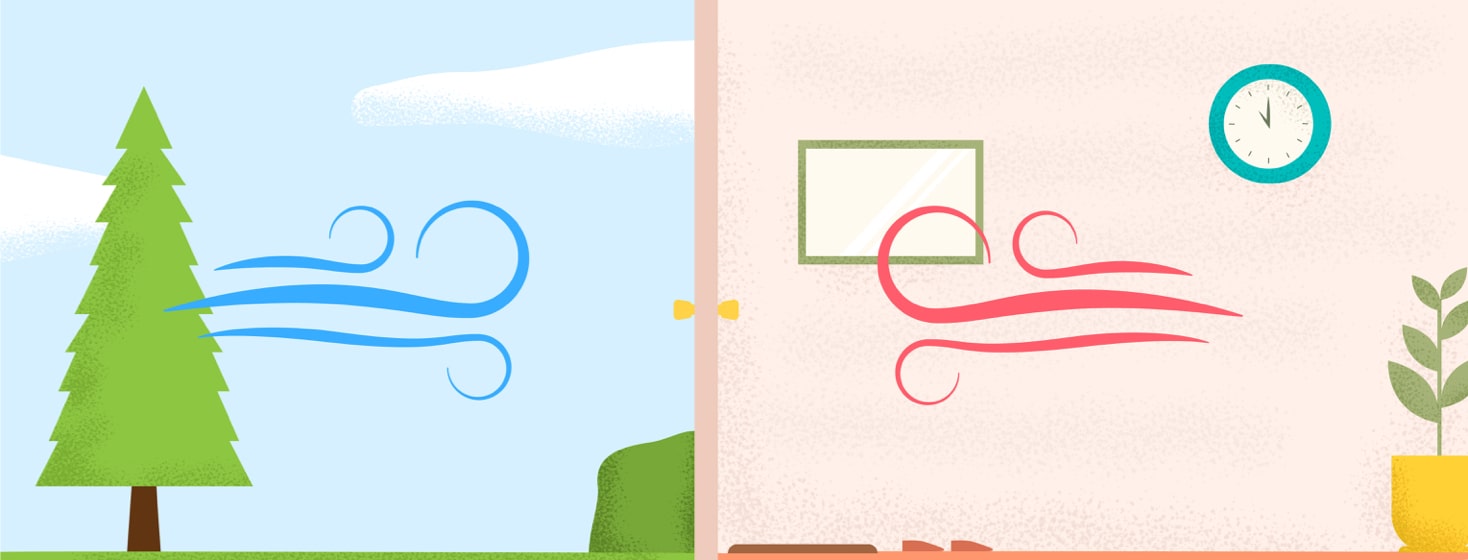Can Fresh Air Actually Help With Asthma Symptoms?
"Maybe you just need some fresh air."
If you have asthma, this might be a phrase that someone has said to you while you were experiencing an asthma flare-up or attack. This is certainly not the most helpful phrase to offer to someone who is struggling to breathe, and typically asking what you can do to help would be a better option. However, could there be some truth to this phrase?
Trigger-free air
When my partner is experiencing an asthma flare-up, it is typically because one of his triggers is nearby or in the room. For example, if we are in someone's house with a cat, this might cause him to start feeling constriction in his throat, itchiness, and swollen eyes. Additionally, if someone is burning scented candles or wearing strong perfume inside a house, it can cause him to feel asthma symptoms. Therefore, stepping outside and using his inhaler is the best thing for him to do in a situation like this.
Other people with asthma may also start to feel asthma symptoms arise when inside from common triggers like dust mites, animal dander, fragrance, dry air, fireplace smoke, or food cooking. Stepping outside into "fresh air" where the asthma triggers are not lurking, or even opening the windows can help reduce your exposure to these indoor triggers. However, it is important to note that opening the windows or stepping outside may expose you to outdoor triggers (more on this under the heading "What if the air isn't so fresh?).1
Air temperature and moisture
Another reason stepping outside for air might help is the temperature and moisture content of the air. For example, if the air inside your house or in another building is very dry and warm, going outside to cooler air might feel good for your lungs. Being inside a humid gym or a cold grocery store may also trigger your asthma; in which case leaving the building and going outside might make you feel better. This truly just depends on what type of air and moisture content is a trigger for you.
What if the air isn't so fresh?
Stepping outside might actually worsen asthma symptoms in some instances. For example, on a day with a high pollen count, stepping outside for air could easily bring on an asthma flare-up or attack. This year was a bad year for wildfires, so going outside for a bit of air when the fires were at their worst would have quickly brought on asthma symptoms for my partner.
If you live in a bustling city or an area that has a lot of agricultural activity, you may experience air pollution. Air pollution can be caused by cars, airplanes, industry, agriculture, and a variety of other factors. You can be prepared and check how bad air pollution is on the internet or on a weather app on your phone. On days when air pollution is bad, going outside could make your asthma symptoms worse. Therefore, the outside air might not be so fresh, depending on the day and where you are.
Mountain air
Lastly, if you are someone who lives in a busy city or agricultural area, going into the mountains or somewhere in nature might be a nice change for your lungs. If you are exposed to air pollution on a daily basis, removing yourself from this and breathing in this new and more natural environment will likely feel better. This is one reason the air feels cleaner and fresher when you go camping and hiking somewhere in the mountains or forest.
Conclusion
Stepping outside to get fresh air will certainly not stop an asthma attack on its own. However, stepping outside and away from indoor asthma triggers may help reduce further exposure to triggers and the worsening of asthma symptoms. If the air inside is bothersome to your asthma, as it may be too dry, humid, cold, or hot, the outdoor air may be more agreeable for you. The phrase "Maybe you just need some fresh air" still remains unhelpful, but getting away from indoor triggers may be a good first step in preventing an asthma attack or flare-up.

Join the conversation